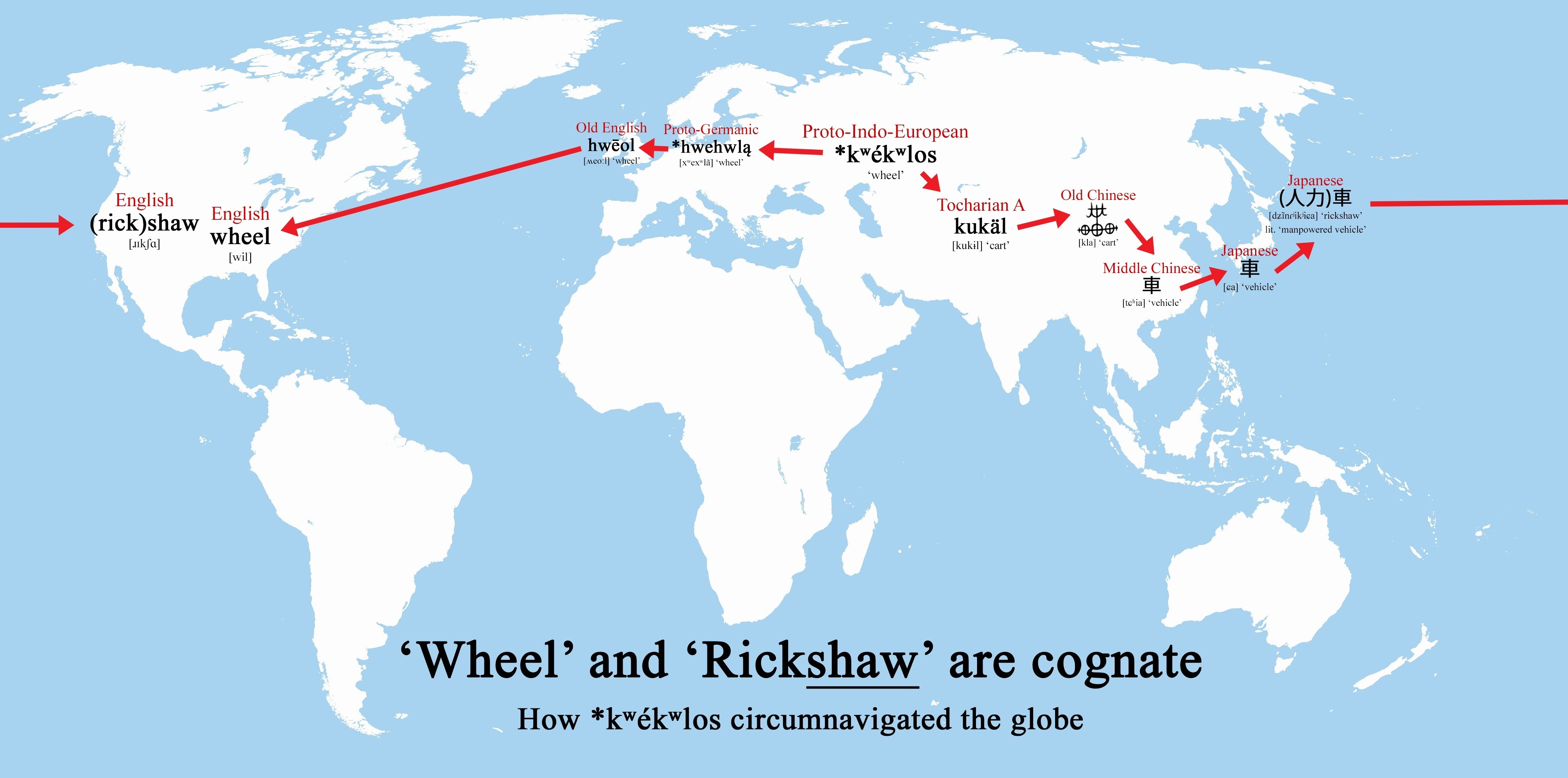this post was submitted on 09 Feb 2024
92 points (95.1% liked)
Linguistics
523 readers
98 users here now
Welcome to the community about the science of human Language!
Everyone is welcome here: from laymen to professionals, Historical linguists to discourse analysts, structuralists to generativists.
Rules:
- Stay on-topic. Specially for more divisive subjects.
- Post sources whenever reasonable to do so.
- Avoid crack theories and pseudoscientific claims.
- Have fun!
Related communities:
founded 10 months ago
MODERATORS
you are viewing a single comment's thread
view the rest of the comments
view the rest of the comments

Hmm, I wonder where Lithuanian "ratas" comes from then.
Answering my own question:
From Proto-Italic *rotā, from Proto-Indo-European *Hróth₂-eh₂, from *Hreth₂- (“to run”).
Interestingly, "ratas" is also Finnish and means "gear".
A lot of Finnish and Estonian words for agriculture and tools came from the Baltic languages via trade. The theory is that Finns didn't do agriculture before that trade occurred. Which of these can you understand without looking them up?
Jautis/Karvė
Avinas/Avis
Ožys/Ožka
Kirvis
Kūjis
Dalgis
Kvietys/Kviečiai
Aviža/Avižos
Miežys/Miežiai
With a quick look I only recognise "kirvis" to be close to "kirves" meaning axe. I don't know if it's correct though.
You are correct :)